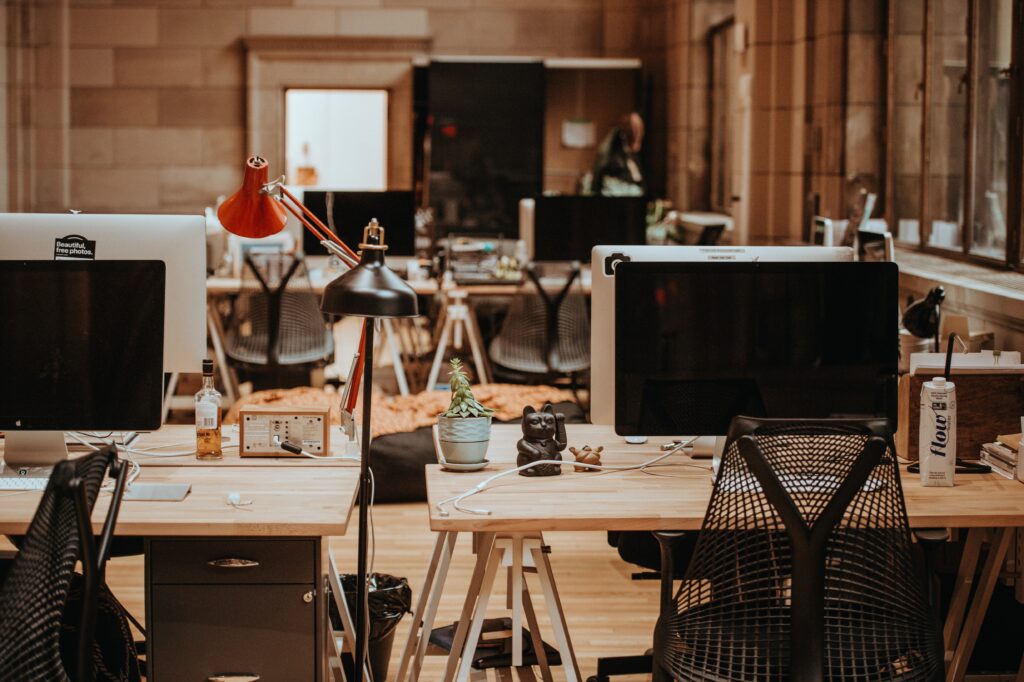
For professors, the first lecture of the semester is their chance to set the tone for the term and make a good first impression. At least, that’s how Matthias Spitzmuller sees it.
The Queen’s University professor believes it’s his opportunity to show students his commitment face-to-face and leave them excited for what’s to come. But this year was different. Instead of waking up ready to meet his students, he woke up with a mild cough, feeling slightly fatigued.
“Two years ago, I definitely would have gone to give that lecture in person,” he said. Spitzmuller would have taken some over-the-counter drugs to suppress his cough and gone into work.
“Now,” he said, “I realize that, if I’m expecting my students to not be there [when they’re sick], then I have to do the same.”
Pre-pandemic, Spitzmuller wasn’t the only person who worked through sickness. People tended to drag themselves into the office or classroom while battling a nasty cough or an achy body instead of taking a sick day.
It’s a phenomenon known as presenteeism. Workplace Mental Health Promotion defines presenteeism as employees who physically come to work despite not feeling well, and wind up working under suboptimal conditions.
According to Harvard Business Review, presenteeism cuts an employee’s productivity by one-third or more.Unlike its sister problem, absenteeism, presenteeism can be trickier to spot — it’s sometimes difficult to tell if an illness or medical condition might be hindering someone’s efficiency, especially if the illness relates to mental health.
So why do people show up if they aren’t well? Professionals around the globe attribute it to an overarching culture that equates excessive overwork with excellence. Spitzmuller sees this in his own classroom.
Students have come to class with a deadly cough and sleepy eyes, he said, seemingly proud of their back-to-back all-nighters. Spitzmuller gets the sense that all-nighters have long been perceived as a sign of resilience, accomplishment and mental toughness.
“There’s the expectation that only the weak fall sick and only the weak give in to the pressures of stress,” he said.
In 2019, research from global staffing firm Accountemps found that 89 per cent of professionals in Canada admitted to coming into the office with cold or flu symptoms. Their rationales varied, everything from feeling as though they had too much work to do to not wanting to use a sick day to feeling pressured by their employer or their co-workers to come to work sick.
Spitzmuller believes that presenteeism is a deep-rooted cultural issue that will be difficult to resist in certain contexts. Still, he says, some people will be fairly immune to its lessons.
“There will be organizations that will want to go back to a mentality of excessive overwork, simply because it’s so deeply ingrained in the DNA,” says Spitzmuller. He likes to use big investment banks and consulting firms to make his point.
Spitzmuller explains how 20 years ago organizations talked about changing their models to embrace a work-life balance. Fast forward to now and very few of them lived up to that promise, he says. “I think they’ve genuinely tried. But in the end, their history and their culture… overpowers those change efforts.”
Ted Pispidikis, a 2019 graduate of the Schulich School of Business, persevered through almost two years of investment banking before he made the switch to venture capital.
If employees think their sniffles are a get out of jail free card, Pispidikis cautions them to think again. “The expectation is you suck it up and work through it.”
It’s this overwork convention that makes Pispidikis believe that the pandemic will not change the expectation that people put work first. “Investment banking becomes your number-one priority,” he said, “above your friends, above your social life, above your extracurriculars, even above your family sometimes.”
While the pandemic provided people with an overdue opportunity to re-evaluate this toxic culture, a 700 per cent increase in the number of people working from home seems to have moved the problems digital.
Even with flexible working policies doubling from pre-pandemic times, researchers from human resource software company ADP learned hybrid working models and increased flexibility can actually exacerbate the pressures of presenteeism. This explains why 54 per cent of employees internationally still felt the need to continue demonstrating availability to employers during the pandemic.
While 78 per cent of employers expect at least a partial return to the office in the next three months, per ADP’s research, only one in five employees say they want to go back to their workplace full time. This means businesses will need to address the problem of presenteeism in both the physical and digital workplaces.
Instead of counting the hours you work, the key is to judge your success by the results you produce, wrote New York Times journalist Robert Pozen. Spitzmuller concurs, stating that leaders should recognize employees who manage to get their work done within the nine-five time standard. “That doesn’t mean they’re lazy,” he says, “it just means that they are so good at what they do that they are able to do it in a normal workday.”
And if healthy people are unable to complete the job working at sustainable levels of performance during regular hours, Spitzmuller says the expectations may not be realistic
He tries to set a positive example in the classroom by modelling responsible post-pandemic behaviour himself. “We must learn to make it acceptable, and actually encourage students to not be there when it is not appropriate to be there,” he says.
While the effects of the pandemic on presenteeism are still uncertain, one thing is for certain: Spitzmuller will not be in the classroom the next time he feels under the weather.
